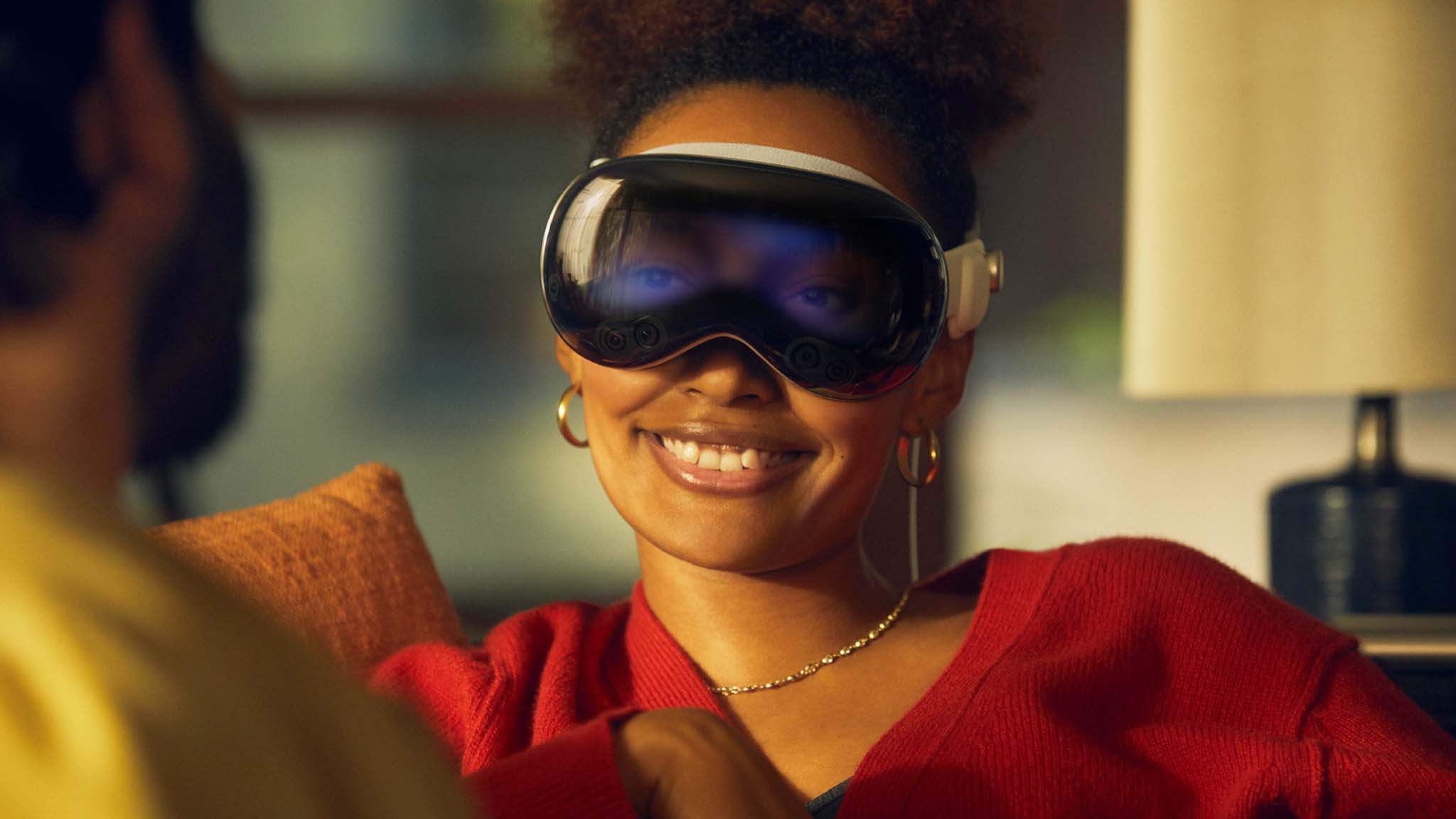Apple’s long-anticipated Vision Pro AR glasses showed great promise at launch, but the iPhone maker has failed to live up to the hype. For instance, the company deterred many users from buying the entry due to its steep $3,500 price tag, seemingly limiting its accessibility to high-income markets.
The sophisticated augmented reality headset is riddled with a wide range of issues, including health concerns like eye strain and cognitive fatigue, design flaws (particularly its bulkiness), and limited app support from developers, which makes the $3,500 entry less appealing outside of its novelty.
Be that as it may, the hype around the expensive headset has quickly faded as affordable and more multi-functional entries like XREAL’s AR glasses join the fold. However, a new report suggests that Apple might be attempting to make a comeback with the Vision Pro via AI-powered features (via LaptopMag).
According to Bloomberg’s Mark Gurman, Apple plans to ship its AI (Apple Intelligence) to the Vision Pro, an updated mode for guest users, and a spatial content app to potentially spark user interest and drive more headset sales.
The AR headset will reportedly receive the highlighted improvements via a new update, visionOS 2.4, which is slated to ship as early as April. However, developers may gain access to these new features this week.
While Apple has yet to confirm any of the highlighted details, if true, Apple Intelligence will ship with a wide range of features to the Vision Pro, including Writing Tools, Genmojis, and the Image Playground app.
Will Apple Intelligence save the Vision Pro from flopping?
Apple played safe with generative AI until October 2024, when it unveiled its Apple Intelligence strategy. Interestingly, Apple Intelligence hasn’t hit its prime-time yet, as it continues to ship in waves for iPhone 15 users and higher or Macs with M1 chips and higher.
Apple’s iPhone sales have seemingly declined over the past few years, especially in the Chinese market. It’s unclear if Apple Intelligence’s debut has helped improve these figures in the grand scheme of things. It will be interesting to see if this theory proves successful for the Vision Pro.
This news comes weeks after Microsoft confirmed it was handing over the development of its military IVAS hardware and software to Anduril Industries, potentially dumping the $22 billion deal to the third-party developer if the deal pulls through.
Last year, the Redmond giant pulled the plug on its Windows Mixed Reality platform and stopped developing HoloLens 2.





